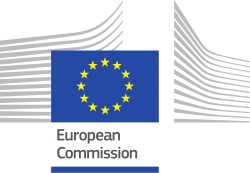Soil
New environmental strategies address soil pollution with a 50% reduction in the use of chemical pesticides by 2030 and a 20% reduction in fertilizer use and a reduction in nutrient losses of at least 50%.
Soil is an important ecosystem that provides valuable services such as the provision of food, energy and raw materials, carbon sequestration, water purification, nutrient regulation, pest control and the promotion of biodiversity and recreation. In the European Union, soil quality continues to deteriorate due to a wide range of human activities, often in combination with other biotic and abiotic factors. The main processes of soil degradation in the European Union and the Czech Republic are: erosion, loss of organic matter, compaction, landslides, contamination and permanent soil cover.
Insufficient soil protection can undermine sustainability and long-term competitiveness. The soil is connected to air and water in such a way that it regulates their quality. Other soil functions make a huge contribution to areas such as biodiversity, forestry, agriculture and food security and climate change mitigation. In order to improve soil quality, there is ambition to designate at least one third of the total land area as protected areas, reduce urban sprawl, reduce the risk of pesticide use, return agricultural land to high-diversity landscapes, increase progress in remediation of contaminated sites and brownfields, reduce soil degradation and planting new forests.

Soil is a very important element in food production. Czech and European foods are known for being safe, nutritious and high quality. In any case, food production still leads to air, water and soil pollution, contributing to biodiversity loss and climate change. By shifting from compliance to performance, measures such as ecological regimes should reward farmers for better environmental and climate behavior, including soil carbon management and storage, and better nutrient management to improve water quality and reduce emissions.
Creating an environment free of toxic substances requires more measures to prevent soil pollution, as well as measures to eliminate and remedy it. In order to protect citizens and ecosystems, we need to better monitor, report, prevent and correct pollution from air, water, soil and consumer goods. To address these interconnected challenges, the European Commission will adopt an action plan for zero air, water and soil pollution in 2021.
The range of tools available under Horizon Europe will support the necessary research and innovation efforts. The four “Green Deal missions” will help bring about far-reaching changes in areas such as adaptation to climate change, oceans, cities and soil. These missions bring together a wide range of stakeholders, including regions and citizens. The KICs run by the European Institute of Innovation and Technology will continue to support cooperation between higher education institutions, research organizations and companies on climate change, sustainable energy, healthy soils, food for the future and smart, green and integrated urban transport.
Support from EU

European Soil Partnership
European Soil Data Centre – ESDAC
The European Soil Data Centre (ESDAC) is the thematic centre for soil related data in Europe. Its ambition is to be the single reference point for and to host all relevant soil data and information at European level. It contains a number of resources that are organized and presented in various ways: datasets, services/applications, maps, documents, events, projects and external links.
News
We have no results for the given criteria.
Events
We have no results for the given criteria.
Videos

12. 12. 2022
Potenciál místní ekonomiky – pozvánka
Projects
We have no projects on this topic yet.
Another links
We have no results for the given criteria.















